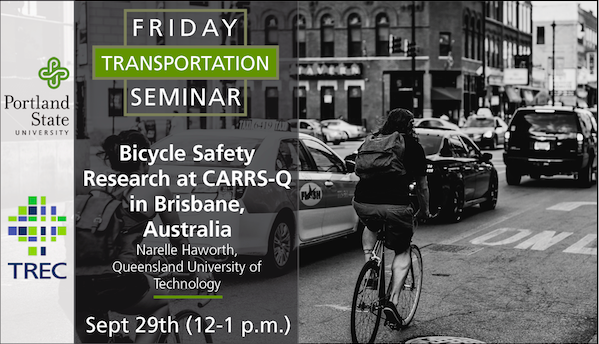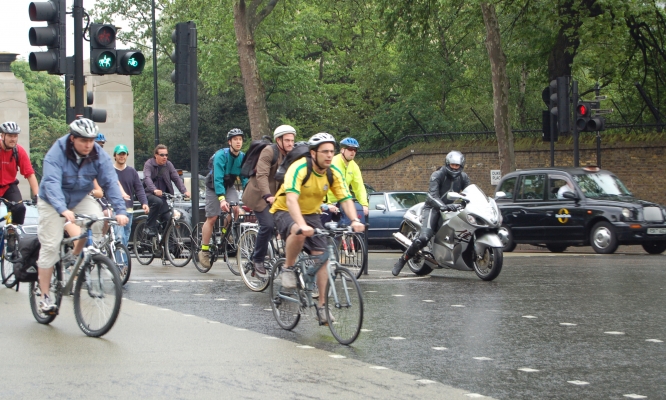The video begins at 3:55.
View slides
Abstract: Portland is planning to launch a bike share system. Bike share is a new form of public transit that is rapidly spreading through the United States. In 2009, bike share operated in two U.S. cities. Today, 20 US cities operate systems with another 15 in the planning stages. In several cities, including Denver, Minneapolis and Washington, DC bike share has demonstrated the ability to bring new people to bicycling while reducing single occupancy vehicle trips. How will bike share work in the nation’s most bike friendly city (doesn’t everybody already have a bike)? What challenges does Portland face, and what opportunities does bike share offer to reach the Portland’s Bike Plan for 2030’s ambitious goals?
Speaker Bio: Steve Hoyt-McBeth is a project manager in the Portland Bureau of Transportation’s Active Transportation Division. He has worked on bike share at PBOT since 2008. Steve also manages PBOT’s employer and commuter Transportation Demand Management program, SmartTrips Business. He has 15 years experience working with local governments and neighborhoods in Oregon and California on land use, energy and transportation issues. Steve is a graduate of the University of Oregon.


